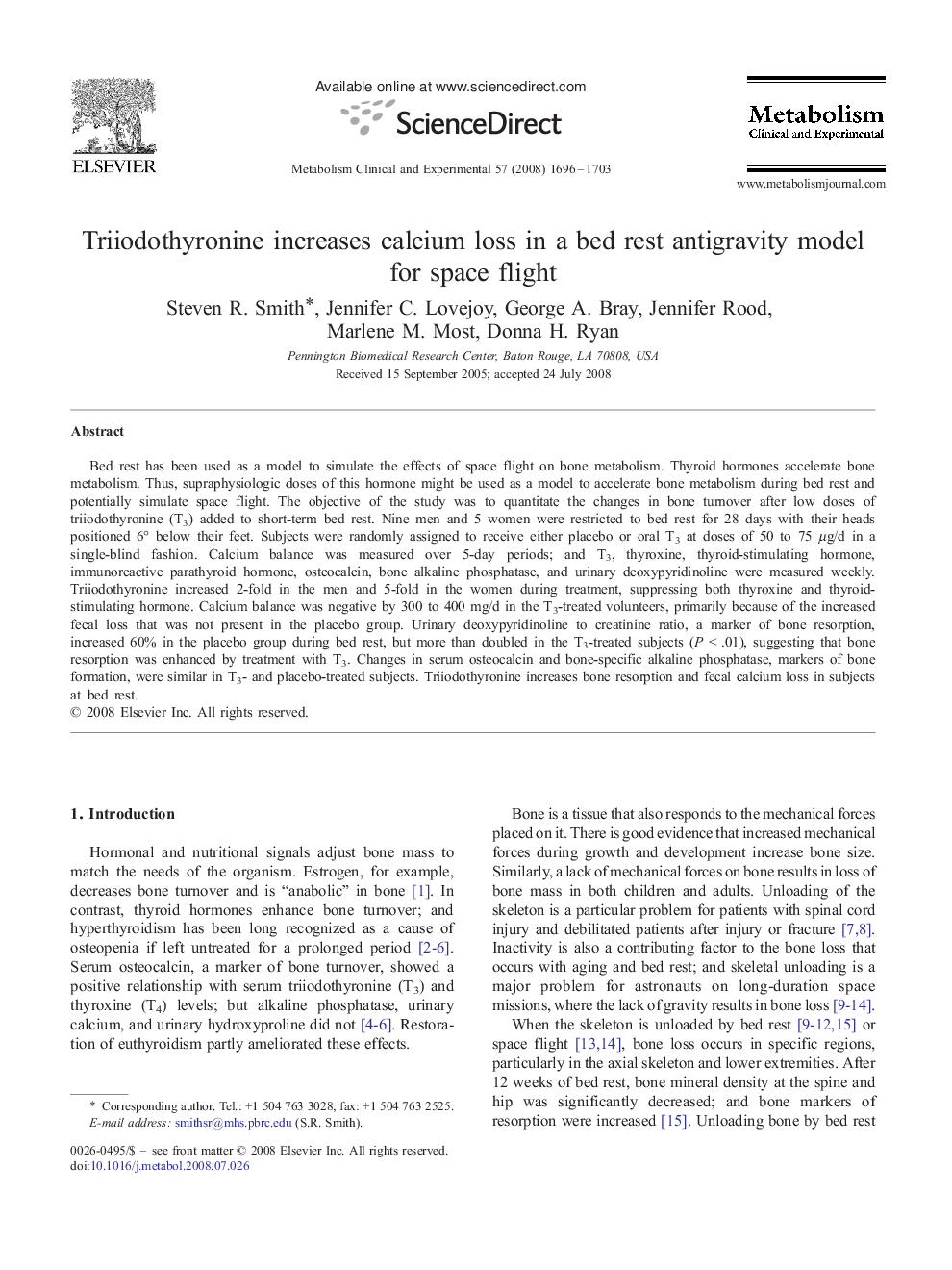| کد مقاله | کد نشریه | سال انتشار | مقاله انگلیسی | نسخه تمام متن |
|---|---|---|---|---|
| 2806557 | 1157124 | 2008 | 8 صفحه PDF | دانلود رایگان |

Bed rest has been used as a model to simulate the effects of space flight on bone metabolism. Thyroid hormones accelerate bone metabolism. Thus, supraphysiologic doses of this hormone might be used as a model to accelerate bone metabolism during bed rest and potentially simulate space flight. The objective of the study was to quantitate the changes in bone turnover after low doses of triiodothyronine (T3) added to short-term bed rest. Nine men and 5 women were restricted to bed rest for 28 days with their heads positioned 6° below their feet. Subjects were randomly assigned to receive either placebo or oral T3 at doses of 50 to 75 μg/d in a single-blind fashion. Calcium balance was measured over 5-day periods; and T3, thyroxine, thyroid-stimulating hormone, immunoreactive parathyroid hormone, osteocalcin, bone alkaline phosphatase, and urinary deoxypyridinoline were measured weekly. Triiodothyronine increased 2-fold in the men and 5-fold in the women during treatment, suppressing both thyroxine and thyroid-stimulating hormone. Calcium balance was negative by 300 to 400 mg/d in the T3-treated volunteers, primarily because of the increased fecal loss that was not present in the placebo group. Urinary deoxypyridinoline to creatinine ratio, a marker of bone resorption, increased 60% in the placebo group during bed rest, but more than doubled in the T3-treated subjects (P < .01), suggesting that bone resorption was enhanced by treatment with T3. Changes in serum osteocalcin and bone-specific alkaline phosphatase, markers of bone formation, were similar in T3- and placebo-treated subjects. Triiodothyronine increases bone resorption and fecal calcium loss in subjects at bed rest.
Journal: Metabolism - Volume 57, Issue 12, December 2008, Pages 1696–1703